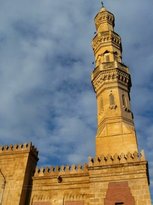Menu
TRADITIONAL ISLAM
The tradition from which I draw is Sunni Islam from the Islamic West—i.e. West of Mecca and Medina. The outer limit of this zone used to be the Maghreb, but today it reaches across the Atlantic into the Americas, and up into Western Europe. This section of the website is devoted to the multiple dimensions of traditional Islam, primarily but not exclusively in these Western regions.
Words like 'traditional' are used in a variety of ways, often abusively. In my work, I use this term to refer to cultural or religious currents that develop in continuity rather than rupture with the past. Traditional Islam is not a concept I use to refer nostalgically to some idealized past, since I view traditions as dynamic, plural and changing. On the other hand, untraditional or anti-traditional currents seek to break with the past. In some cases, this rupture with the immediate past is accompanied by a desired return to the state of affairs in a much earlier period. This is the case with various movements frequently referred to as fundamentalist. For instance, most people who identify themselves as Salafis wish to recreate today the conditions of the first generations of Islam in seventh century Arabia. Those Muslim scholars I would label traditional generally refute such fundamentalist ideologies. One important counterargument to fundamentalism is that by attempting to ignore the centuries of tradition that separate them from their foundational period fundamentalists destroy the bridge between the two eras. Without this bridge, they are left mainly with their own projections about that golden age. Doing away with tradition makes people vulnerable to their own fantasies about how things once were and how they should be. |
|
